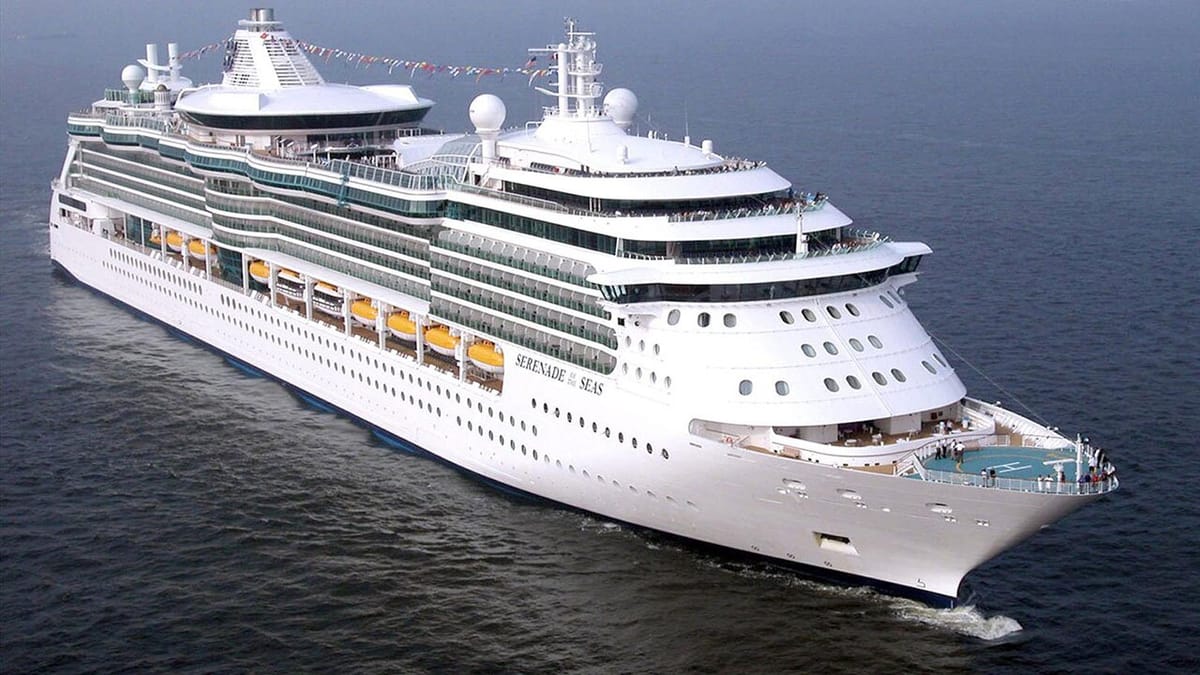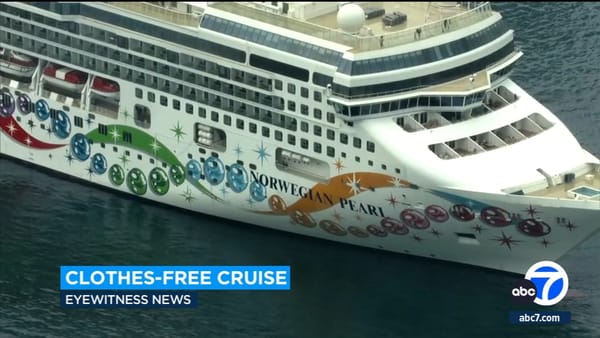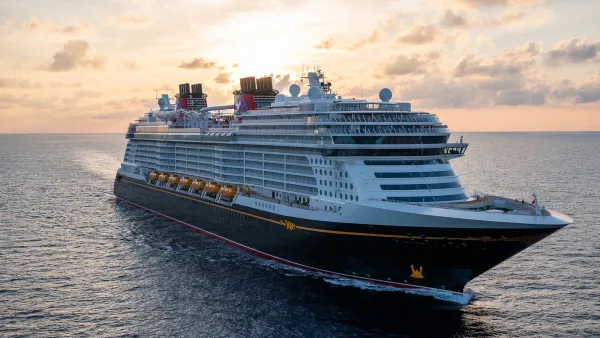Norovirus Outbreak Sickens Nearly 100 on Serenade of the Seas Cruise
The norovirus outbreak highlights ongoing public health challenges faced by cruise lines, despite enhanced sanitation efforts and CDC oversight to limit transmission during voyages.

Royal Caribbean International is contending with a norovirus outbreak aboard the Serenade of the Seas, where nearly 100 individuals, including passengers and crew, have fallen ill during a 13-day cruise. The outbreak was reported nine days into the voyage, which departed from San Diego, California, on September 19, and made scheduled stops in Mexico, Costa Rica, Panama, and Colombia, including a Panama Canal transit. The ship is carrying a total of 1,874 passengers and 883 crew members, and is scheduled to arrive at its final destination in Miami on October 2.
Confirmed Cases and Symptoms
The U.S. Centers for Disease Control and Prevention (CDC) confirmed that 94 passengers and four crew members aboard Serenade of the Seas experienced symptoms consistent with norovirus, including diarrhea and vomiting. Other potential symptoms identified by the CDC include nausea, stomach cramps, fever, headache, and body aches. Norovirus typically manifests 12 to 48 hours after exposure, with recovery occurring within one to three days for most affected individuals. The CDC lists the virus as a highly contagious gastrointestinal infection, spreading rapidly in enclosed environments like cruise ships, schools, and healthcare facilities.
While fewer than 4% of those onboard the ship were affected, norovirus outbreaks remain a prominent challenge for the cruise industry. This is the 19th gastrointestinal illness outbreak reported aboard a cruise ship this year, 14 of which have been attributed to norovirus. Similar figures were reported in 2022, with the virus implicated in 15 of 18 gastrointestinal outbreaks tracked by the CDC.
Containment and Sanitation Measures
Upon identifying the outbreak, Royal Caribbean implemented enhanced health protocols onboard Serenade of the Seas to limit the spread of the virus and mitigate risks. The cruise line and its medical teams followed CDC guidelines and enacted measures that included:
- Isolating all symptomatic passengers and crew to prevent further transmission.
- Increasing cleaning and disinfection efforts in shared and public areas.
- Collecting stool specimens from affected individuals for testing.
- Consulting with the CDC’s Vessel Sanitation Program to optimize sanitation protocols and ensure compliance.
The cruise line further adjusted operational protocols, removing communal items like condiment containers from dining areas, and emphasized the importance of maintaining stringent hygiene standards. A Royal Caribbean spokesperson stated, “The health and safety of our guests, crew, and the communities we visit are our top priority. To maintain an environment that supports the highest levels of health and safety onboard our ships, we implement rigorous cleaning procedures, many of which far exceed public health guidelines.”
Economic and Industry Implications
Norovirus outbreaks on cruise ships underscore the operational and reputational challenges faced by the industry, including potential economic repercussions. PortMiami, one of the busiest ports globally and the final destination of Serenade of the Seas, is a major hub for cruise operations, hosting millions of passengers annually. The recurring nature of gastrointestinal illness outbreaks highlights the need for sustained collaboration between cruise operators and public health agencies like the CDC to address these issues effectively and restore passenger confidence.
Despite rigorous sanitation measures, norovirus outbreaks remain persistent due to the unique logistical challenges associated with containing highly contagious illnesses within enclosed environments. Cruise companies face the ongoing responsibility of balancing passenger satisfaction with operational efficiency and compliance with strict health regulations.
Understanding Norovirus and Prevention
Norovirus is one of the leading causes of gastrointestinal illness in the United States, responsible for approximately 2,500 outbreaks annually, according to the CDC. The virus spreads via viral particles contained in feces and vomit, contaminating surfaces, water, and food. It is especially contagious during symptomatic phases, though infected individuals may remain contagious for several days after symptoms subside.
The CDC emphasizes proper hand hygiene as the most effective prevention method. Passengers are advised to wash their hands thoroughly with soap and water for at least 20 seconds, given that hand sanitizers are less effective against norovirus. Additional preventive measures include promptly cleaning bathroom areas after episodes of diarrhea or vomiting and carefully handling food preparation.
The CDC's continued monitoring of norovirus outbreaks highlights the importance of reporting cases early and adhering to sanitation protocols to limit the risk of widespread transmission. Passengers can also minimize risks by avoiding shared surfaces, maintaining hydration, and following medical advice promptly if symptoms arise.
Frequently Asked Questions (FAQs)
What is norovirus?
Norovirus is a highly contagious virus that causes gastrointestinal symptoms, including diarrhea, vomiting, nausea, and stomach pain. It spreads through contaminated food, water, surfaces, or direct contact with infected individuals.
How does norovirus spread aboard cruise ships?
Norovirus spreads rapidly in enclosed spaces like cruise ships due to close passenger interactions and the sharing of communal facilities. Contaminated surfaces and communal dining or restrooms are key transmission points onboard.
What steps did Royal Caribbean take to address the outbreak?
Royal Caribbean implemented increased cleaning and disinfection procedures, isolated symptomatic passengers and crew, collected stool samples for testing, removed communal items from dining areas, and consulted with the CDC’s Vessel Sanitation Program to refine sanitation protocols.
How can passengers prevent norovirus infection while cruising?
Passengers can reduce risk by practicing thorough handwashing with soap and water, avoiding shared surfaces, promptly cleaning up any personal messes, and adhering to hygiene recommendations issued by the cruise line and public health authorities.
Will the outbreak affect the ship’s arrival in Miami?
The Serenade of the Seas is expected to conclude its voyage in Miami on October 2 as scheduled. Elevated public health measures have been enforced to minimize further transmission while the ship continues its planned itinerary.




